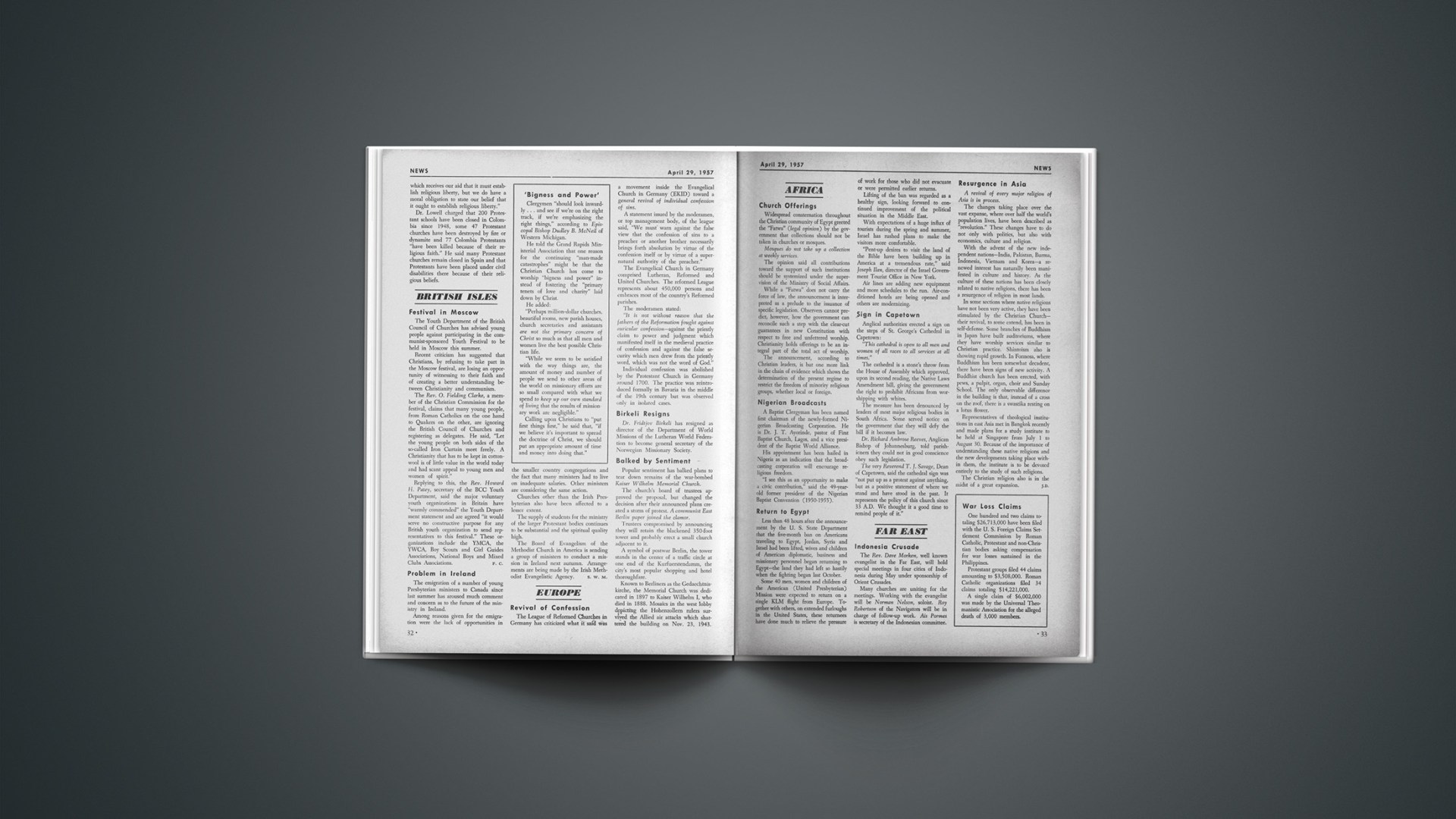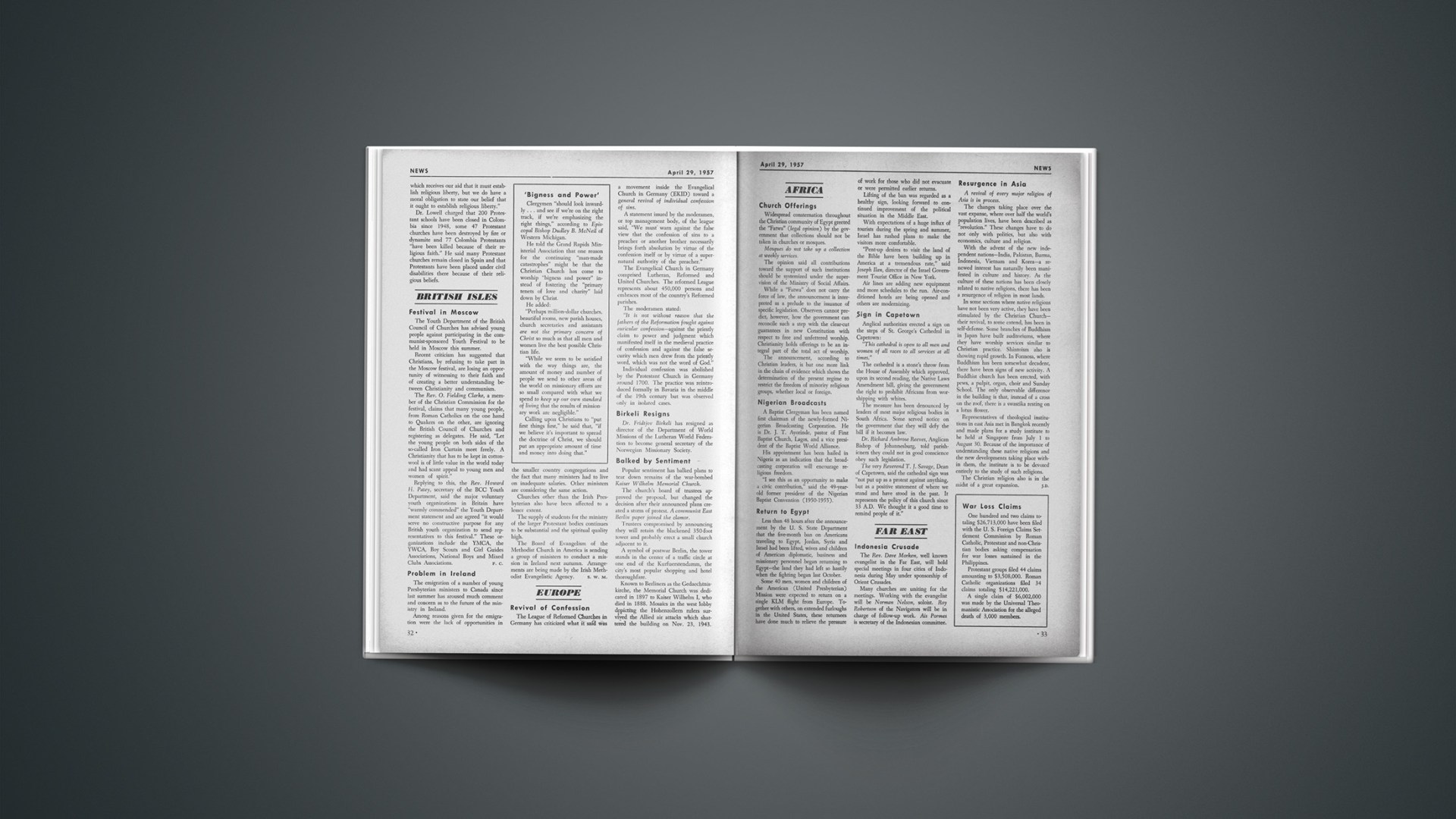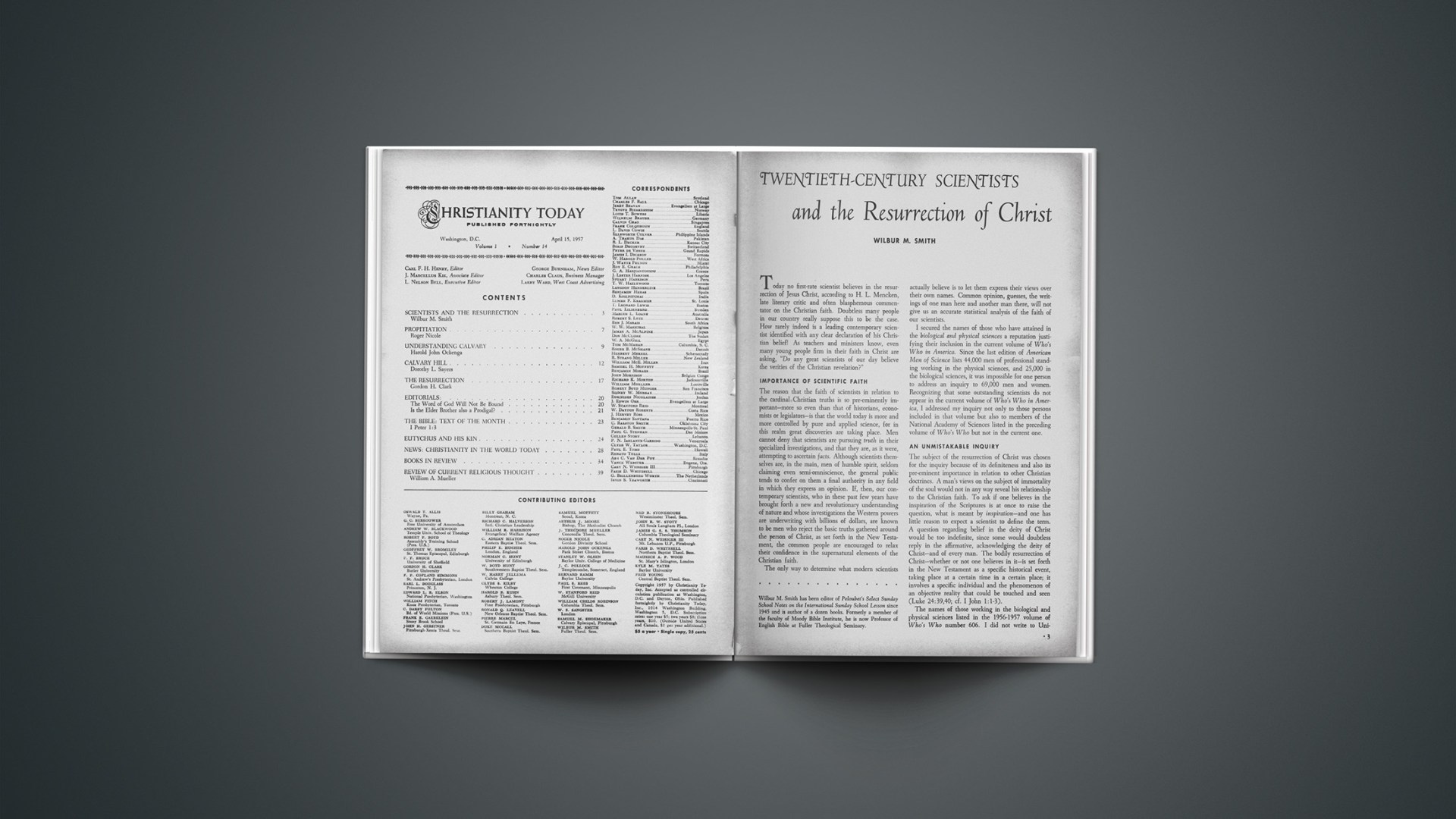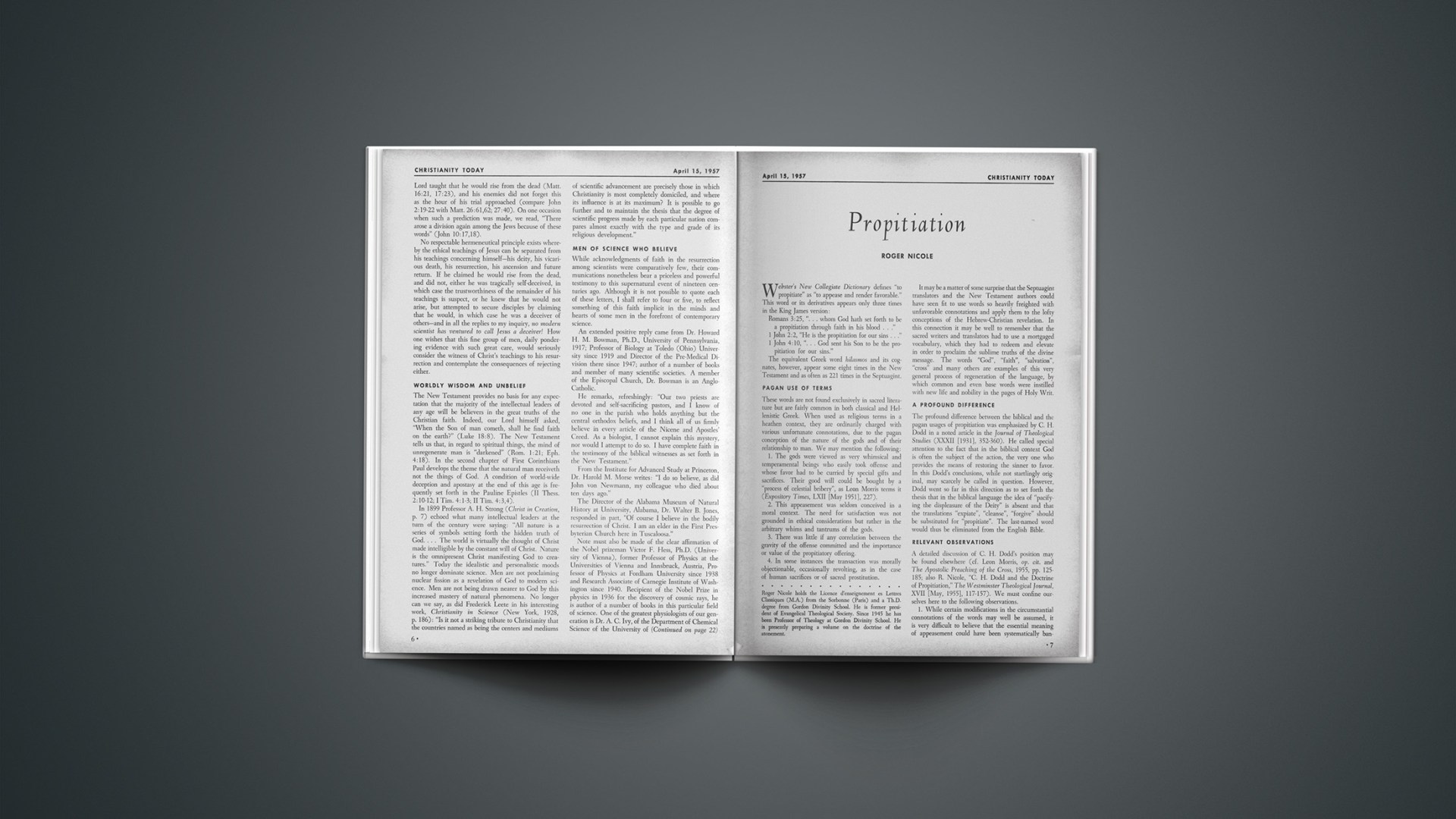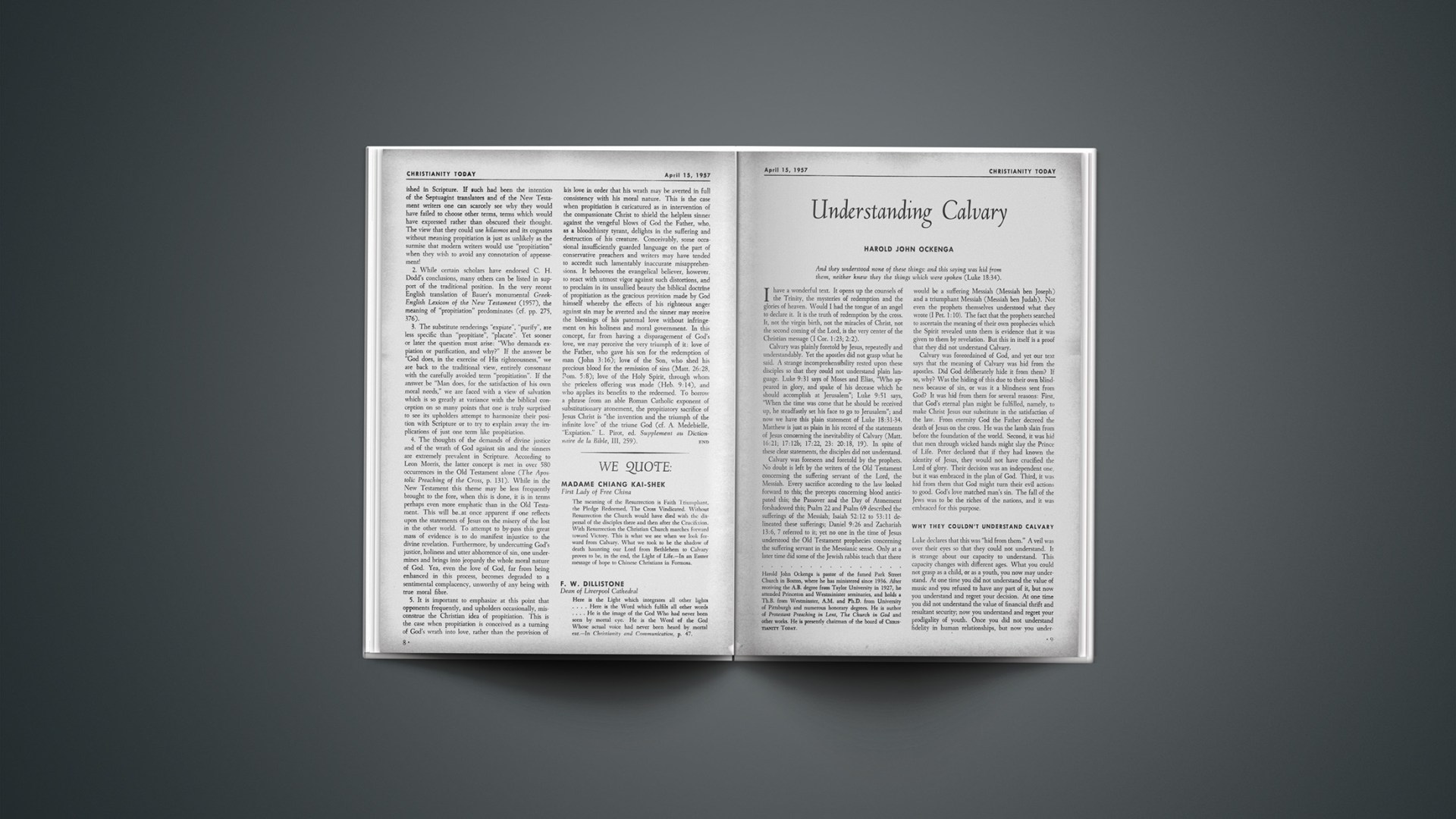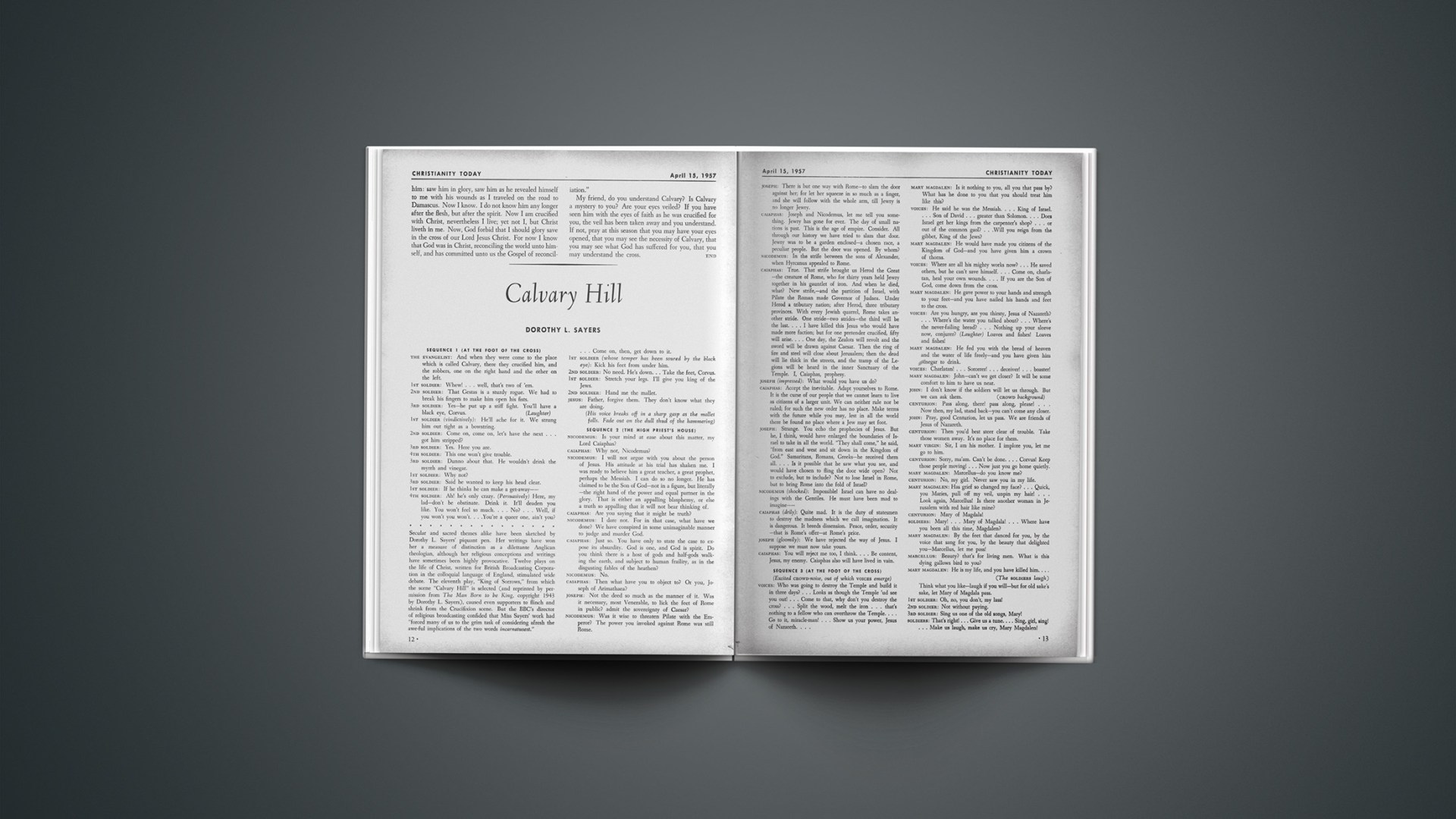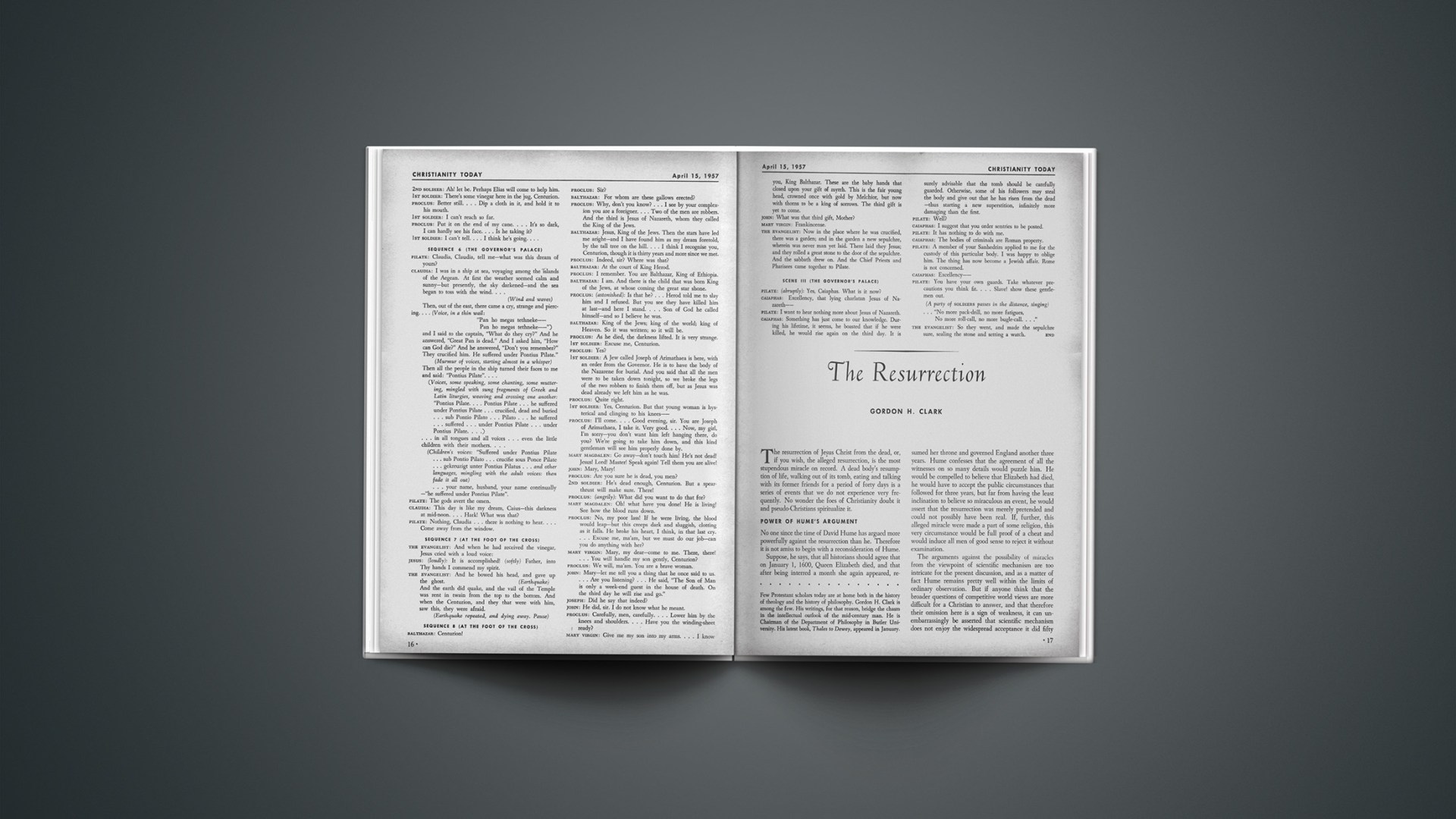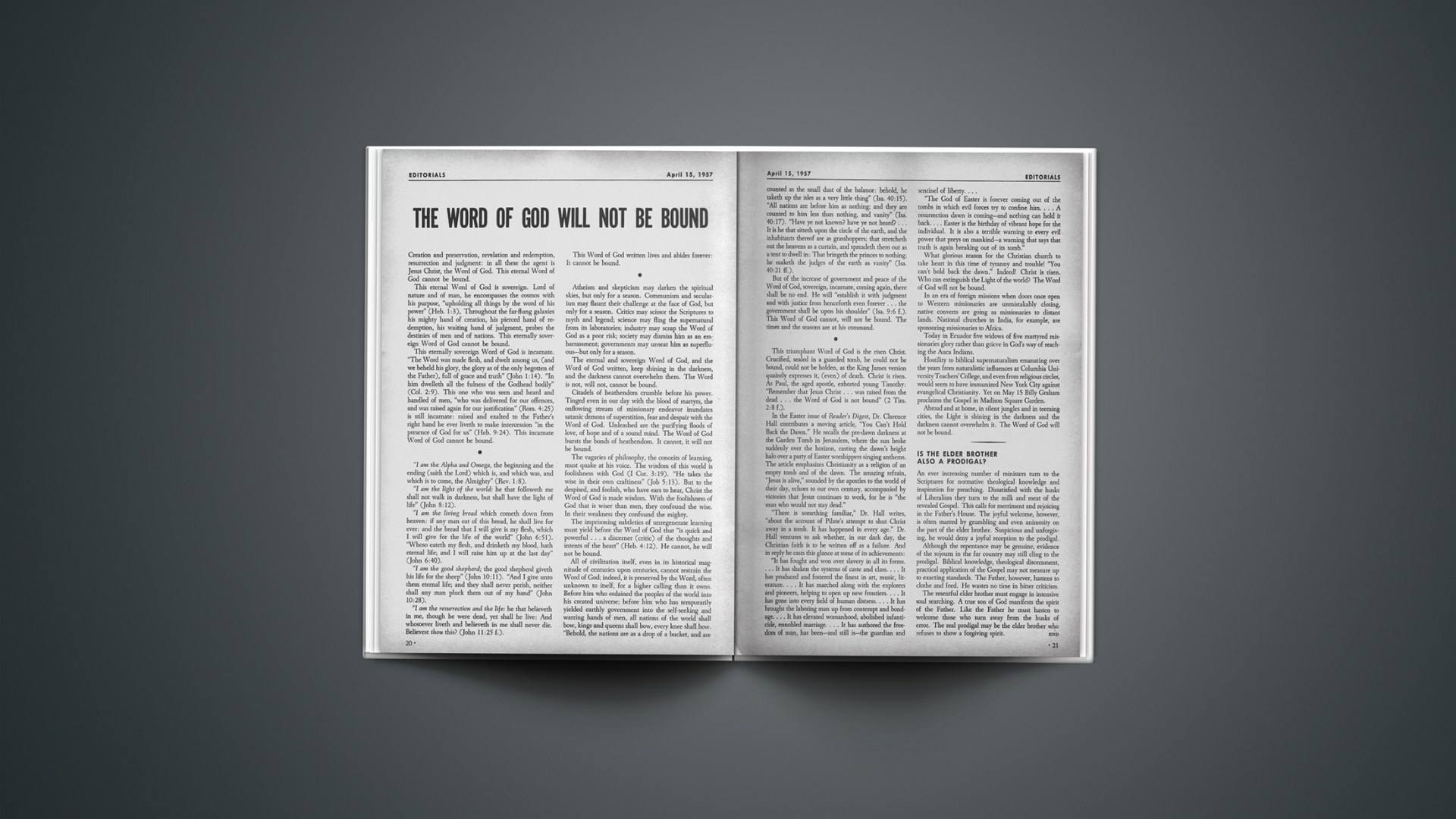Revival Of Confession
The League of Reformed Churches in Germany has criticized what it said was a movement inside the Evangelical Church in Germany (EKID) toward a general revival of individual confession of sins.
A statement issued by the moderamen, or top management body, of the league said, “We must warn against the false view that the confession of sins to a preacher or another brother necessarily brings forth absolution by virtue of the confession itself or by virtue of a supernatural authority of the preacher.”
The Evangelical Church in Germany comprised Lutheran, Reformed and United Churches. The reformed League represents about 450,000 persons and embraces most of the country’s Reformed parishes.
The moderamen stated:
“It is not without reason that the fathers of the Reformation fought against auricular confession—against the priestly claim to power and judgment which manifested itself in the medieval practice of confession and against the false security which men drew from the priestly word, which was not the word of God.”
Individual confession was abolished by the Protestant Church in Germany around 1700. The practice was reintroduced formally in Bavaria in the middle of the 19th century but was observed only in isolated cases.
Birkeli Resigns
Dr. Fridtjov Birkeli has resigned as director of the Department of World Missions of the Lutheran World Federation to become general secretary of the Norwegian Missionary Society.
Balked By Sentiment
Popular sentiment has balked plans to tear down remains of the war-bombed Kaiser Wilhelm Memorial Church.
The church’s board of trustees approved the proposal, but changed the decision after their announced plans created a storm of protest. A communist East Berlin paper joined the clamor.
Trustees compromised by announcing they will retain the blackened 350-foot tower and probably erect a small church adjacent to it.
A symbol of postwar Berlin, the tower stands in the center of a traffic circle at one end of the Kurfuerstendamm, the city’s most popular shopping and hotel thoroughfare.
Known to Berliners as the Gedaechtniskirche, the Memorial Church was dedicated in 1897 to Kaiser Wilhelm I, who died in 1888. Mosaics in the west lobby depicting the Hohenzollern rulers surviyed the Allied air attacks which shattered the building on Nov. 23, 1943.
Church Offerings
Widespread consternation throughout the Christian community of Egypt greeted the “Fatwa” (legal opinion) by the government that collections should not be taken in churches or mosques.
Mosques do not take up a collection at weekly services.
The opinion said all contributions toward the support of such institutions should be systemized under the supervision of the Ministry of Social Affairs.
While a “Fatwa” does not carry the force of law, the announcement is interpreted as a prelude to the issuance of specific legislation. Observers cannot predict, however, how the government can reconcile such a step with the clear-cut guarantees in new Constitution with respect to free and unfettered worship. Christianity holds offerings to be an integral part of the total act of worship.
The announcement, according to Christian leaders, is but one more link in the chain of evidence which shows the determination of the present regime to restrict the freedom of minority religious groups, whether local or foreign.
Nigerian Broadcasts
A Baptist Clergyman has been named first chairman of the newly-formed Nigerian Broadcasting Corporation. He is Dr. J. T. Ayorinde, pastor of First Baptist Church, Lagos, and a vice president of the Baptist World Alliance.
His appointment has been hailed in Nigeria as an indication that the broadcasting corporation will encourage religious freedom.
“I see this as an opportunity to make a civic contribution,” said the 49-year-old former president of the Nigerian Baptist Convention (1950–1955).
Return To Egypt
Less than 48 hours after the announcement by the U. S. State Department that the five-month ban on Americans traveling to Egypt, Jordan, Syria and Israel had been lifted, wives and children of American diplomatic, business and missionary personnel began returning to Egypt—the land they had left so hastily when the fighting began last October.
Some 40 men, women and children of the American (United Presbyterian) Mission were expected to return on a single KLM flight from Europe. Together with others, on extended furloughs in the United States, these returnees have done much to relieve the pressure of work for those who did not evacuate or were permitted earlier returns.
Lifting of the ban was regarded as a healthy sign, looking forward to continued improvement of the political situation in the Middle East.
With expectations of a huge influx of tourists during the spring and summer, Israel has rushed plans to make the visitors more comfortable.
“Pent-up desires to visit the land of the Bible have been building up in America at a tremendous rate,” said Joseph Ilan, director of the Israel Government Tourist Office in New York.
Air lines are adding new equipment and more schedules to the run. Air-conditioned hotels are being opened and others are modernizing.
Sign In Capetown
Anglical authorities erected a sign on the steps of St. George’s Cathedral in Capetown:
“This cathedral is open to all men and women of all races to all services at all times.”
The cathedral is a stone’s throw from the House of Assembly which approved, upon its second reading, the Native Laws Amendment bill, giving the government the right to prohibit Africans from worshipping with whites.
The measure has been denounced by leaders of most major religious bodies in South Africa. Some served notice on the government that they will defy the bill if it becomes law.
Dr. Richard Ambrose Reeves, Anglican Bishop of Johannesburg, told parishioners they could not in good conscience obey such legislation.
The very Reverend T. J. Savage, Dean of Capetown, said the cathedral sign was “not put up as a protest against anything, but as a positive statement of where we stand and have stood in the past. It represents the policy of this church since 33 A.D. We thought it a good time to remind people of it.”

